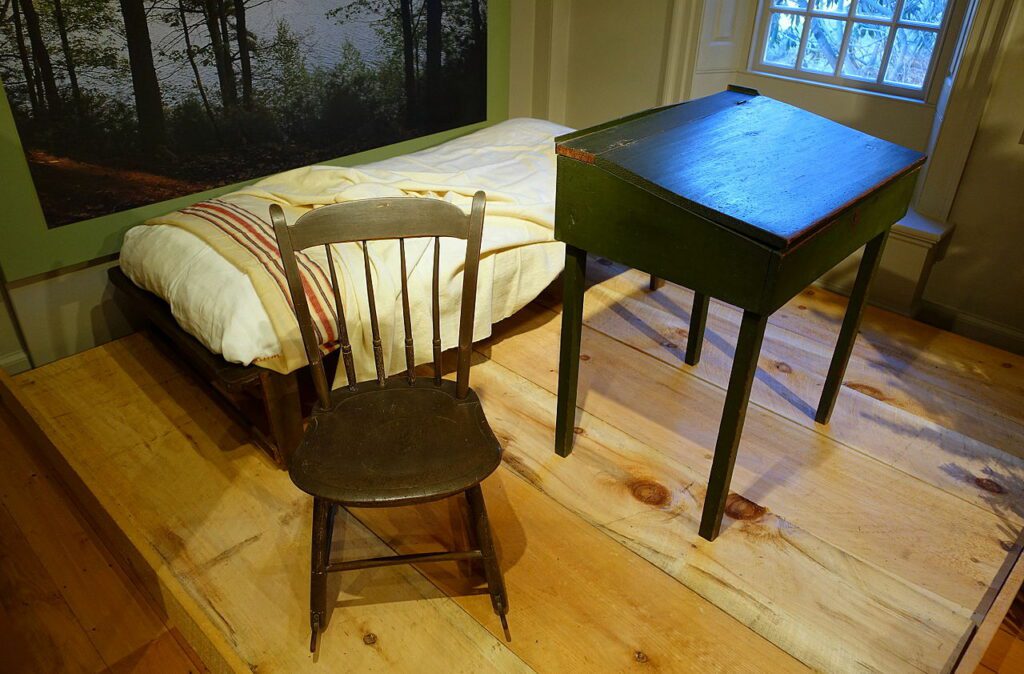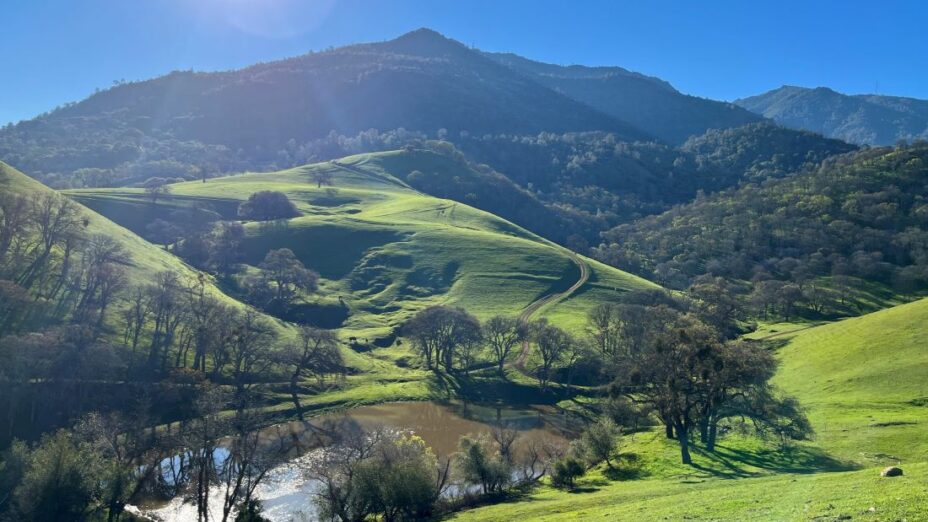
As Save Mount Diablo works to raise funds to acquire and protect Krane Pond on the lower slopes of Mount Diablo, next to Mount Diablo State Park, we are reminded of the importance a pond can have for people, place, wildlife . . . and even for world history and conservation when you consider Henry David Thoreau and Walden Pond.

We’ve reached 89 percent of our goal!
From 1845 to 1847, Henry David Thoreau lived next to Walden Pond in Concord, Massachusetts in a small house he built himself on land owned by his mentor, Ralph Waldo Emerson.
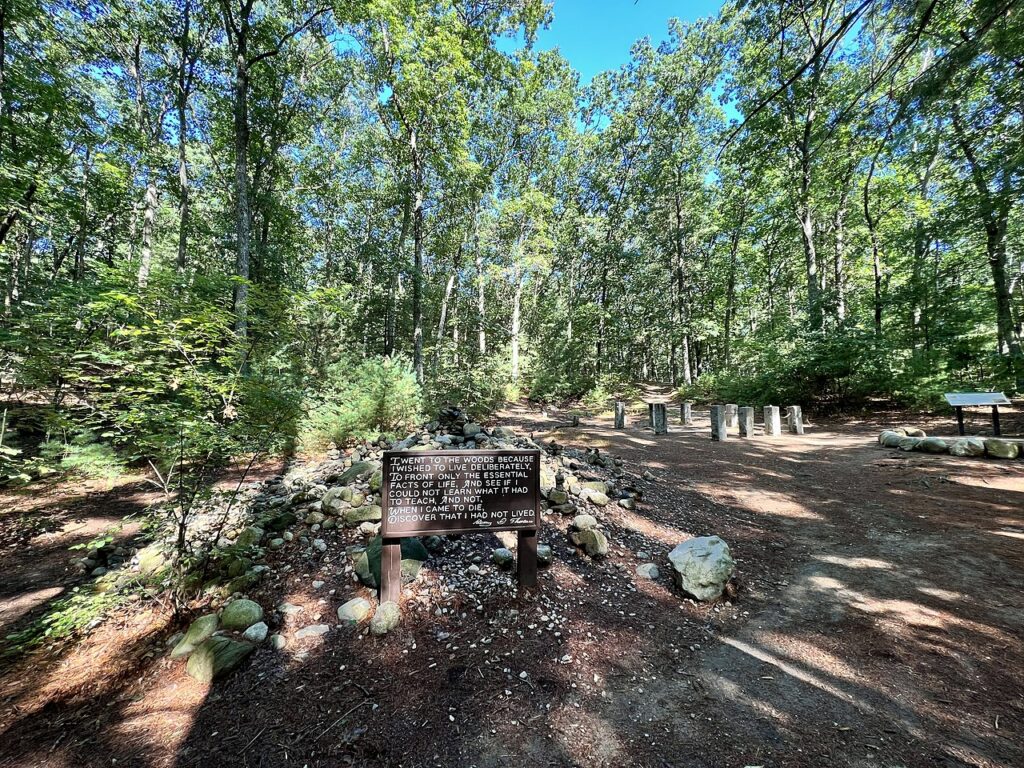
Henry David Thoreau’s cabin site at Walden Pond. Photo by Hunter Bloor | CC BY-SA
Even before that historic residency, Walden Pond had made a lasting impression on Henry David Thoreau as a child.
In his book Walden, Thoreau wrote, “When I was four years old, as well I remember, I was brought from Boston to this my native town, through these very woods and this field, to the pond. It is one of the oldest scenes stamped in my memory. And now to-night my flute has waked the echoes over that very water.”
While living next to Walden Pond, the pond and its natural surroundings deepened and developed this impression on Thoreau.
He had important transcendent realizations and experiences during that time that helped him grow as a social reformer, naturalist, philosopher, transcendentalist, and scientist.
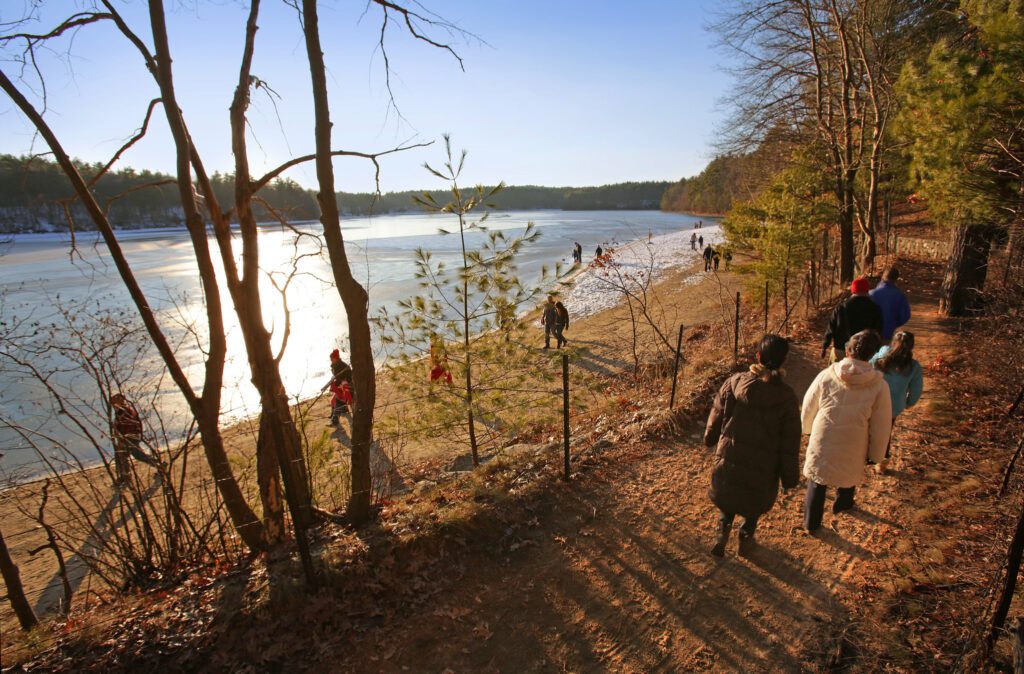
Henry David Thoreau lived at Walden Pond from July 1845 to September 1847. His experience at Walden provided the material for the book Walden, which is credited with helping to inspire awareness and respect for the natural environment. Photo courtesy Massachusetts Office Of Travel & Tourism | CC BY-ND
Those experiences and realizations led him to create some of the most important writings in American history like Civil Disobedience and Walden, writings that would later influence people like Mahatma Gandhi and Dr. Martin Luther King, Jr.
Even after Henry David Thoreau moved away from Walden Pond, he would return to the pond for inspiration and renewal.
In 1855, Thoreau joined with Ralph Waldo Emerson, Bronson Alcott, and William Ellery Channing to form the “Walden Pond Walking Association” for saunterings to Walden and other spiritually renewing destinations.
On January 3, 1861, Thoreau wrote the following reflection in his journal, “What are the natural features which make a township handsome? A river, with its waterfalls and meadows, a lake, a hill, a cliff or individual rocks, a forest, and ancient trees standing singly.
“Such things are beautiful; they have a high use which dollars and cents never represent. If the inhabitants of a town were wise, they would seek to preserve these things, though at a considerable expense; for such things educate far more than any hired teachers or preachers, or any at present recognized system of school education. . . . It would be worth the while if in each town there were a committee appointed to see that the beauty of the town received no detriment.”
Some have pointed out that this journal entry may have been one of the earliest calls for the creation of groups like local nonprofit land trusts working to protect our natural world, as Save Mount Diablo does.
In 1922, the Emerson family and others deeded more than 80 acres of Walden land to the Commonwealth of Massachusetts to secure the pond for appropriate recreation and to preserve its natural beauty.
In 1965, Walden Pond was designated a National Historical and Literary Landmark. Walden Pond and nearby associated lands are further protected by the Commonwealth of Massachusetts as the Walden Pond State Reservation.
Imagine Save Mount Diablo successfully raising the funds to acquire and protect Krane Pond and its associated land.
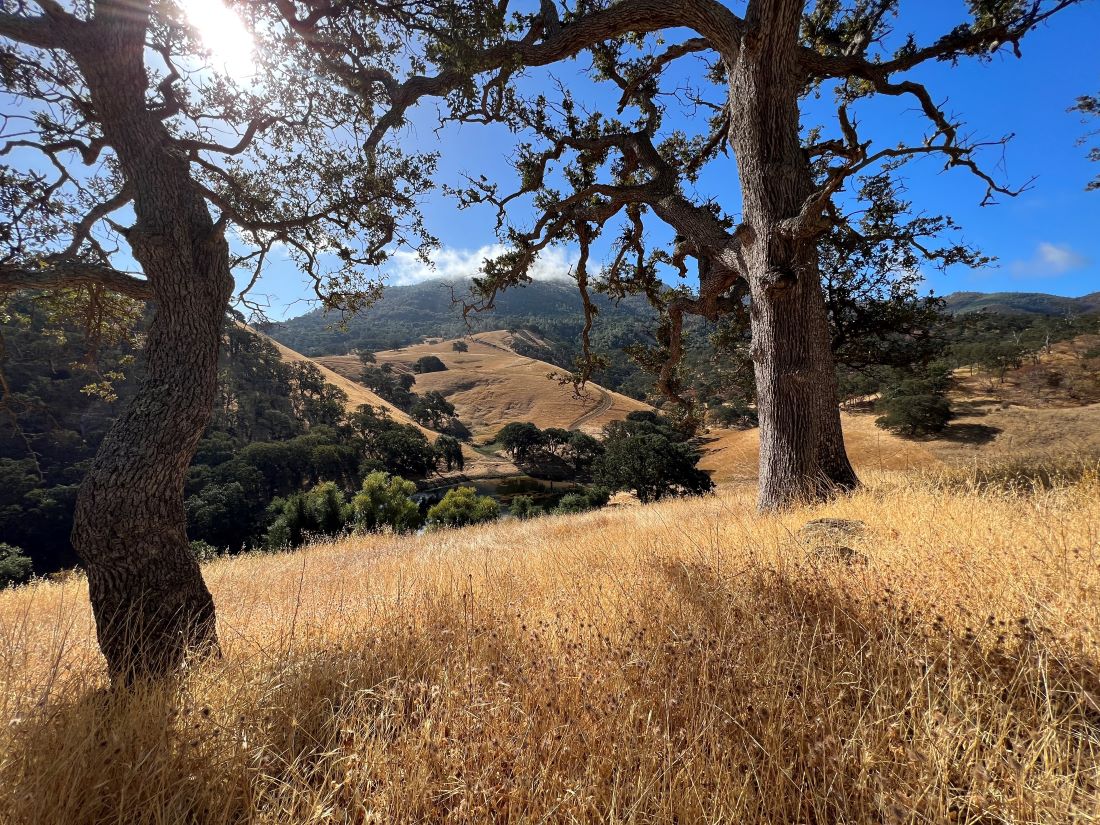
The Krane Pond property in October. Photo by Shannon Grover
Then in your mind’s eye see Save Mount Diablo later conveying ownership of the Krane Pond property to Mount Diablo State Park, which shares a border with the parcel, so that the pond, one of the largest on the north side of Mount Diablo, can be enjoyed by the public in addition to all the wildlife that benefit from it.
Finally, imagine a child sitting by the pond as the pond makes its lasting impression on her. It is the beginning of an important relationship, and she will regularly return to the pond throughout her life.
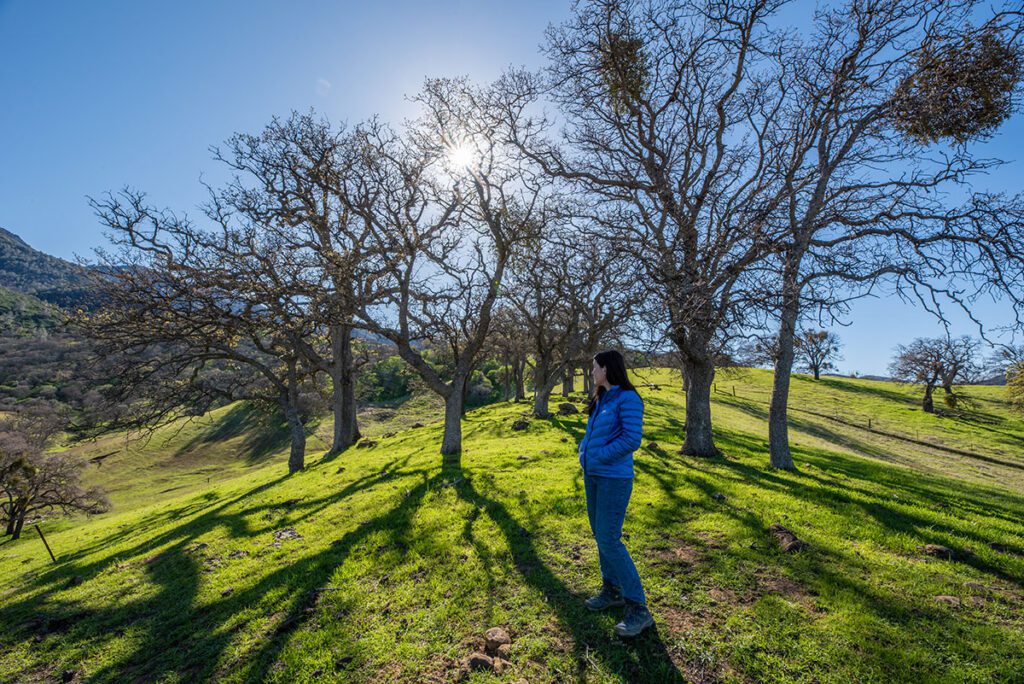
The Krane Pond property. Photo by Scott Hein
When she quietly sits by the pond it is as if she has entered a magical portal where she feels connected to the natural world and is receiving important realizations and ideas that could change the course of history for the better.
As Henry David Thoreau wrote, “In wildness is the preservation of the world.”
